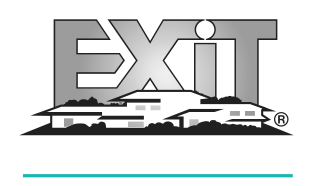A mortgage escrow account is a type of trust account that your lender uses to collect and pay your property taxes and homeowners insurance premiums on your behalf. Each month, you make a payment to your lender that includes your principal and interest payment, as well as an amount to cover your escrow expenses. Your lender then uses the money in your escrow account to pay your property taxes and homeowners insurance premiums when they are due.
Advantages of Mortgage Escrows
There are several advantages to having a mortgage escrow account:
- Convenience: Escrow accounts can make it easier for you to manage your monthly mortgage payments. Instead of having to write separate checks for your property taxes, homeowners insurance, and mortgage, you can simply make one payment to your lender.
- Peace of mind: Escrow accounts can help you avoid late fees and penalties on your property taxes and homeowners insurance. Your lender is responsible for making these payments on your behalf, so you don’t have to worry about forgetting to pay them or running out of money.
- Affordability: Escrow accounts can help you budget for your monthly mortgage payments. Your lender will typically estimate your annual property tax and homeowners insurance bills and divide them by 12 to determine your monthly escrow payment. This way, you know exactly how much you need to budget for your mortgage each month.
- Reduced risk of foreclosure: Lenders are more likely to work with homeowners who have escrow accounts if they fall behind on their mortgage payments. This is because the lender knows that the money to pay the property taxes and homeowners insurance is already in the escrow account.
Disadvantages of Mortgage Escrows
There are also a few disadvantages to having a mortgage escrow account:
- Cost: Lenders typically charge a monthly fee to manage escrow accounts. This fee is typically small, but it can add up over time.
- Loss of control: When you have an escrow account, you are giving up control of some of your money. Your lender is responsible for managing the account and paying your property taxes and homeowners insurance premiums. If your lender makes a mistake, it could result in late fees, penalties, or even foreclosure.
- Inaccuracy: Your lender’s estimate of your annual property tax and homeowners insurance bills may not be accurate. If your lender underestimates your bills, you may have to make a large upfront payment to cover the shortfall. If your lender overestimates your bills, you will be overpaying each month.
Should You Get a Mortgage Escrow Account?
Whether or not you should get a mortgage escrow account depends on your individual circumstances. If you are looking for convenience and peace of mind, then an escrow account may be a good option for you. However, if you are on a tight budget or want to maintain control over your finances, then you may want to consider paying your property taxes and homeowners insurance premiums yourself.
Here are some things to consider when deciding whether or not to get a mortgage escrow account:
- Your budget: Can you afford to make a larger monthly mortgage payment to cover your escrow expenses?
- Your financial discipline: Are you confident that you will pay your property taxes and homeowners insurance premiums on time each month?
- Your risk tolerance: Are you comfortable giving up control of some of your money to your lender?
If you are unsure whether or not a mortgage escrow account is right for you, talk to your lender. They can help you understand the pros and cons and make the best decision for your individual circumstances.
Additional Considerations
Here are a few additional things to keep in mind about mortgage escrow accounts:
- Escrow account shortages: If your lender underestimates your property tax or homeowners insurance bills, you may have to make a lump-sum payment to cover the shortfall. This is known as an escrow account shortage.
- Escrow account overages: If your lender overestimates your property tax or homeowners insurance bills, you will build up a surplus in your escrow account. You can request a refund from your lender at any time.
- Escrow account fees: Lenders typically charge a monthly fee to manage escrow accounts. This fee is typically small, but it can add up over time.
- Escrow account disputes: If you have a dispute with your lender about your escrow account, you can file a complaint with the Consumer Financial Protection Bureau (CFPB).
Overall, mortgage escrow accounts can be a convenient and affordable way to manage your property tax and homeowners insurance payments. However, it is important to weigh the pros and cons carefully before deciding whether or not to get an escrow account.



